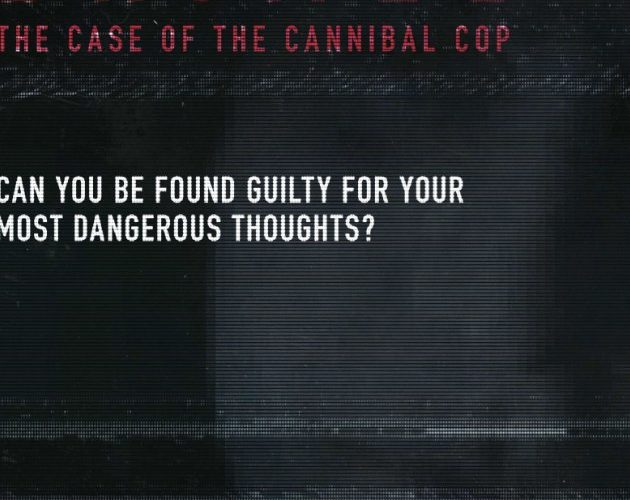Thought Crimes gets a lot of mileage out of its subject: the online activity of Gilberto Valle aka the NYPD’s Cannibal Cop whose fantasies involved kidnapping and eating pretty young women he went to college with. Taking to the dark recesses of the world wide web’s Dark Fetish Network, he shares not only his fantasies in chats with others from around the world, but also images of his would-be “victims” including Kimberly Sauer whom he visited with his wife and kid in what the prosecution dubbed a research trip.
Directed by Erin Lee Carr, Thought Crimes’ glaring flaw is that Valle and his alleged crimes don’t seem to justify a feature-length film. Even at 82 minutes the film overstays its welcome, relying upon explicit and often repetitive, ugly instant message conversations juxtaposed against shots of cooking and eating as we get to know Valle at home. Experts interviewed include Alan Dershowitz and the Lee Rowland of the ACLU, weigh in, along with a psychologist who remains unconvinced that Valle does not pose a threat. While other documentaries have been made about folks that engage in aberrant behavior like Kirby Dick’s now classic Sick: The Life and Death of Bob Flanagan, I suppose the problem is showing versus telling (or thinking) is far more interesting than the thought crime. (Although I would not want to see what Valle describes.)

Much of the documentary is comprised of the “what ifs” from a juror that speaks out to an expert who opines that potential offenders seek out law enforcement positions. Park Dietz, a forensic psychiatrist for hire who works for the defense, makes a head-scratching conclusion: he states Valle’s online activity was essentially a coping mechanism and that he’s harmless. The usually very vocal NYPD PBA president Patrick Lynch is curiously missing here, I thought he never missed an opportunity to defend an officer.
Like the audience, Carr doesn’t quite know what to make of Valle. While the documentary doesn’t shy away from telling us about Valle’s fantasies, which include making bacon strips of Sauer, it also attempts to humanize him in a naturalistic style while Valle struggles to rebuild his life following his incarceration and divorce. Arriving from a background journalism (as the daughter of the late, great Times reporter David Carr) versus filmmaking, Carr never quite succeeds. Chalking it up to this being one of those wacky “only in New York” stories that simply doesn’t warrant this amount of extended attention. Sending us off with Ace Frehley’s “New York Groove” over the end credits is an odd and sloppy choice, that, no pun intended, left me with a bad taste in my mouth. With a tighter focus, a short subject documentary exploring the legality of what Valle did, or perhaps thought about doing, might have made for an interesting picture.
Thought Crimes screened at the Montclair Film Festival and will air on HBO on May 11th.

